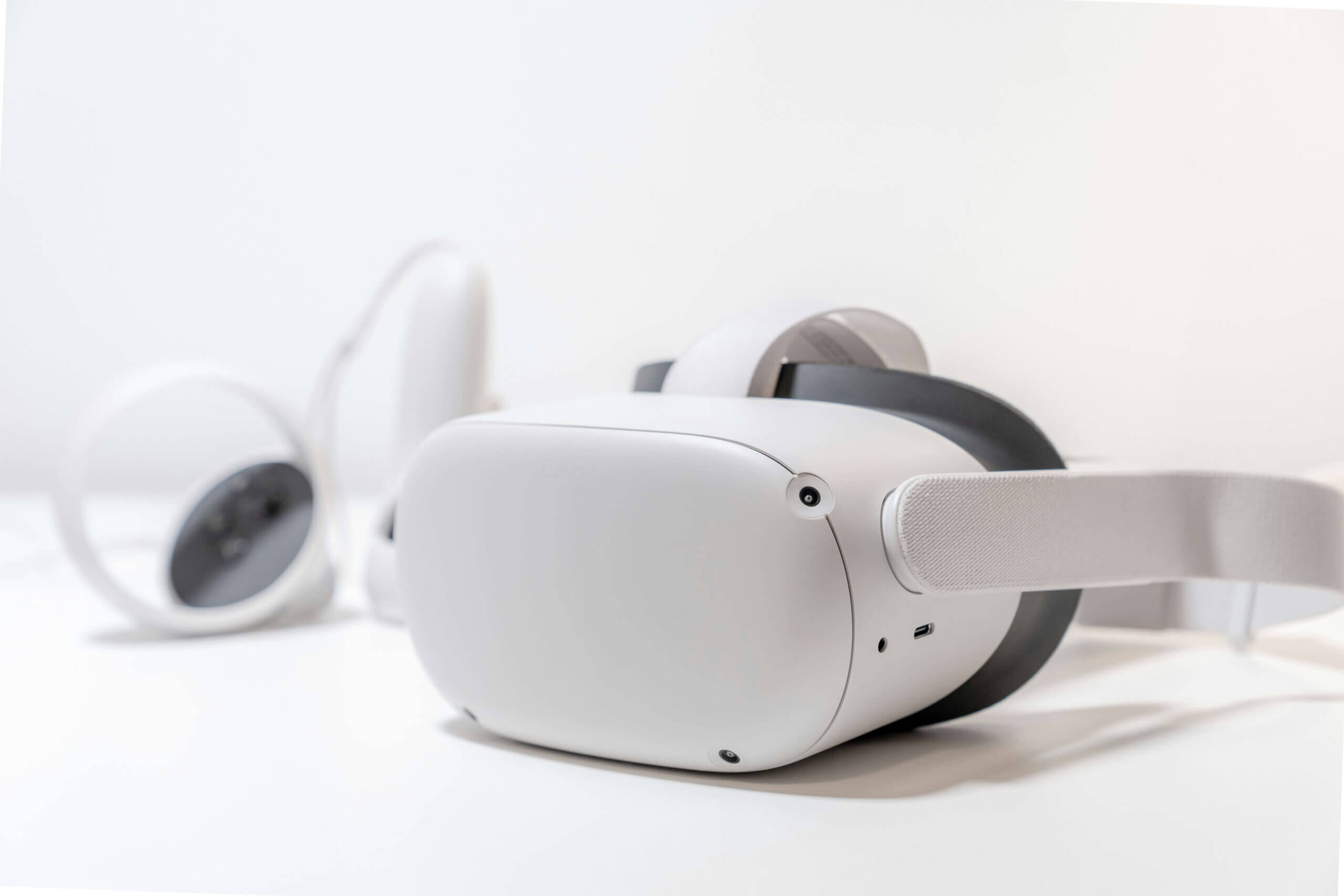Technology has contributed, to the revolution of the real estate sector.
It has been regarded as an element that does not readily welcome change but is now embodying innovations revolutionizing property buying, selling, and management. The advent of such technologies as the intelligence (AI) blockchain and virtual reality (VR), marks a time where efficiency, transparency, or convenience are taken to higher dimensions.
In this paper, we are going to focus on eight trends that will change the way people interact with real estate and lead us to a revolution in this space.
8 Technology Trends Revolutionizing The Real Estate Industry
Before we dive in, it’s worth noting how digital tools like construction estimate software are becoming essential across real estate processes. From planning to budgeting, these tools complement the tech trends discussed below by ensuring accurate forecasts, reducing delays, and streamlining project execution.
1. Artificial Intelligence (AI) in property search
The use of algorithms based on artificial intelligence is changing the ways people look for properties. The more complex artificial intelligence algorithms analyze users’ preferences, past statistics, and property characteristics to give personalized recommendations. This facilitates time-saving and the number of options for potential buyers.
Property suggestions are becoming increasingly customized with time because these artificial intelligence algorithms remain learning and on the move. This leads to improvements in two important aspects, efficiency and satisfaction, with the search process.
“Artificial intelligence is used to predict accurate estimates of the fluctuations in trends within market values and property valuations. This makes it possible for both buyers and sellers to make decisions about the price as well as investment opportunities that are informed by enough information.” – Imran Khan, Director at Home Detail.
2. Blockchain for transparent transactions
The transparency and security of real estate transactions increase with the integration of blockchain intelligence. Smart contracts make property exchange easier because they automate the transfer of properties, reduce fraud potentiality, and provide an unimpeachable record of ownership history.
Consequently, buyers and sellers can achieve a high level of security in their transactions as they will be assured that they are verifiable with no intermediaries. This leads to a decrease in time and cost associated with traditional real estate transactions.
“Blockchain technology can enhance the process of title management as most people associate the activity with a lot of paperwork and complexity. There is potential in reducing disagreements about ownership or titles through centralized storage whereby property data can be stored on blockchains safely, hence resulting at another level increase trusts and efficiency levels in real estate transactions.” – Lauren Taylor, Manager at First Aid at Work Course.
3. Virtual Reality (VR) property tours
It is now possible to offer immersive property tours using virtual reality, removing the need for actual visits. A convenient feature offered by SharedEasy co-living company is the ability to look inside houses that include interactive walkthroughs and 360-degree views, giving them fair space perception.
This technology, however, is not only limited to local buyers but also allows those from other countries to appreciate properties remotely, hence making the real estate market more global.
Imagine searching for apartments for sale in Calgary but being unable to visit them in person. Thanks to virtual reality, it is now possible to offer immersive property tours using virtual reality, removing the need for actual visits.
“Real estate agents and developers are also capable of profiting from a virtual reality home tour. So, as a direct consequence of the ability that real estate agents have to present properties for viewing by potential buyers all over the world in this age and time, showings are no longer necessary. Real estate developers may use virtual reality (VR), such that it allows the customers to imagine and customize their future homes.” – Eric Lam, Head of Business Strategy at Los Angeles Tax Appeal.
4. Internet of Things (IoT) for smart homes
The Internet of Things has changed homes into smart online environments. The Internet of Things application allows property owners to control and track their properties remotely, increasing energy efficiency and security. It is possible to control and monitor everything from thermostats to security systems through lightning appliances using this technology.
To add to the convenience and energy savings that IoT devices bring, property owners and managers receive valuable information from them.
“Internet of Things sensors may detect water leaks, temperature changes, and unwanted access; they can also provide real-time alerts to property managers or homeowners. The prevention approach in maintenance could help avoid costly damages as well as let a person enjoy the overall experience of having one’s own house better” – Tiffany Payne, Marketing Manager at iFlooded Restoration.
5. Big data analytics in real estate investment
The core of big data analytics lies in the sheer capacity to harness large amounts of information that can help real estate investors make evidence-based decisions. These insights thus provide a greater understanding of market trends, rental revenue opportunities, and property valuation, allowing investors to make investment decisions with more knowledge.
Similarly, roofing CRMs are revolutionizing the roofing industry by streamlining project management, improving customer relationships, and enhancing overall efficiency.
Investors can get information about the history of properties and neighborhood characteristics, as well as their climate and environmental parameters, to evaluate risks and opportunities accurately.
“Large-scale data analytics also helps to identify emerging real estate markets and predict future trends in property values. This will be especially useful for investors looking at ways how they can maximize their returns while diversifying their portfolios” – Dean Lee, Head of eCommerce at 88Vape.
In addition to technological innovations, effective project management tools are essential in today’s landscape industry. A prime example of this advancement is landscape estimating software, which substantially enhances efficiency for contractors by streamlining estimating and invoicing tasks, saving crucial time, and minimizing errors.
By leveraging big data, real estate professionals can make more informed decisions and optimize their strategies. Incorporating resources like cold call lists can further enhance these strategies by identifying and targeting potential clients more effectively.
6. 3D printing in construction
3D printing technology is now revolutionizing construction in the sense that building processes are more efficient and cheaper. Besides saving resources and enabling the erection of eco-friendly structures, this technology allows for designing elaborate architectural forms.
The ability to 3D print building elements at the site or in controlled environments allows better precision and personalization, leading through time not only toward more effective construction techniques but also greener ones. In addition to 3D printing, construction estimation software is becoming a crucial tool in ensuring accurate cost planning and resource management, further enhancing project efficiency.
“It is also possible that 3D printing could aid in solving the housing crisis which takes place within urban areas. Cities can develop affordable and sustainable housing solutions to accommodate its growing population if it uses 3D technology for quick construction of low-cost houses without endangering affordability.” – Cameron Holland, Marketing Director at GB Foam.
7. Augmented Reality (AR) for property visualization
Augmented reality applications allow prospective buyers and tenants to see how they would modify a house according to their needs. First, AR technology enables users to see the possibilities with a given piece of real estate software development by layering virtual furnishing and décor onto actual settings.
It not only creates a delightful experience of the visiting house but also facilitates potential buyers to make better-informed decisions about renovations and interior design, thereby helping save time and resources.
Augmented Reality allows real estate personnel to exhibit all the potential of a property in showings, another way that augmented reality (AR) supports this industry. By using AR, they can virtually stage homes enabling buyers to visualize what could be done with such space and speed up the selling process – Arman Minas, Director at Armstone.
8. Sustainability and green real estate practices
As a result of the rising emphasis placed on environmentally friendly properties and green building processes, sustainability has emerged as an essential component in the real estate industry. Technology plays an essential role in the process of evaluating and putting into practice environmentally friendly elements in real estate projects.
Experts can explore how technology is making it easier to incorporate environmentally friendly materials, energy-efficient designs, and renewable energy sources into real estate developments. Additionally, they can investigate the influence that sustainability has on property values as well as the increasing demand for environmentally friendly structures among purchasers and investors. High-end developments like Penthouses for Sale in Malta are increasingly incorporating these sustainable features to attract environmentally conscious luxury buyers who value both premium amenities and green building certifications.
“Sustainable practices are not merely a fad; rather, they represent a fundamental transformation in the real estate business. The adoption of sustainable practices is being driven by technology, which includes everything from environmentally friendly construction materials to intelligent energy management systems. How real estate projects are designed and carried out is being reshaped as a result of the spike in demand for environmentally friendly properties that we are witnessing.” – Ben Flynn, Manager at Homefield IT.
Conclusion
Continued technological advances beyond the limits of what is practical in real estate have great potential for shaping the evolution of that industry. These innovations enhance the real estate journey from the perspectives of buyers, sellers, investors, and tenants. Some landmarks in this regard include AI-powered property searches, blockchain technology-enabled transactions, and immersive virtual reality tours of properties.
The introduction of these technologies not only facilitates the process but provides new opportunities in real estate that are accountable for sustainability, transparency, and efficiency. The conjunction of real estate and technology promises a future that will make finding the perfect house easier and more advanced than anyone has ever seen before. This is the exhilaration that we are enjoying now as we enter into this exciting epoch.
The alliance between these technologies and real estate is going to revolutionize how we interact with properties, making it a more interactive industry for all its actors. The dawn of a new era in the real estate industry has great potential for innovation and progress due to various improvements that have been made.





